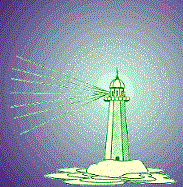 Question
67 from
Question
67 from
The Most Commonly Asked Questions About
A Course in Miracles
Chapter 5: THE CURRICULUM
67) If A Course in Miracles
is a universal teaching, why did it come in such sectarian (i.e., Christian)
terms. Doesn't that limit its worldwide applicability?
While the basic message of A Course in Miracles is universal -- "God's Son is guiltless, and in his innocence is his salvation" ( M-1.3:5) -- its form certainly is not, nor is it meant to be. We have already quoted Jesus' words to the effect that this is a "special curriculum," which clearly reflects that it has a special audience: the Western world that has grown up under the strong influence of Christianity and 20th-century psychology, an influence that has not been very Christian nor spiritual. This is why the Course's language is so Western, and, more specifically, Christian and psychodynamic in statement. As the specific spiritual path we call A Course in Miracles, the Course is simply not meant to have worldwide applicability. Other cultures and religious traditions have, and will continue to have their own spiritual paths, just as we in the Western world now have the Course, among many others. As we have repeatedly pointed out in this book, the universal joining with all people is the content of the universal course, but the specific ways in which people learn this lesson constitutes the forms of the "special curriculum," of which A Course in Miracles is simply one example. Forms, almost by definition, are not the same and cannot blend together. Therefore they cannot be universal, or for all people. This is why Jesus teaches in the introduction to the clarification of terms, to repeat and extend this important statement:
A universal theology is impossible, but a universal experience is not only possible but necessary. It is this experience toward which the course is directed (C-in.2:5-6).This "universal experience," it goes without saying, is love, and A Course in Miracles is but one form of regaining it.
Reproduced with the kind permission of Gloria and Kenneth
Wapnick and the Foundation for A Course in Miracles
- ACIM Glossary-Index
- ACIM Theory
- What is Forgiveness?
- Foundation for Inner Peace ACIM-Archival site: ACIM-Archives.org
- Foundation for Inner Peace Online Store Catalog - A Course in Miracles
- Purchase: The Most Commonly Asked Questions About A Course in Miracles
- Foundation for A Course in Miracles Newsletter: The Lighthouse
-
Links